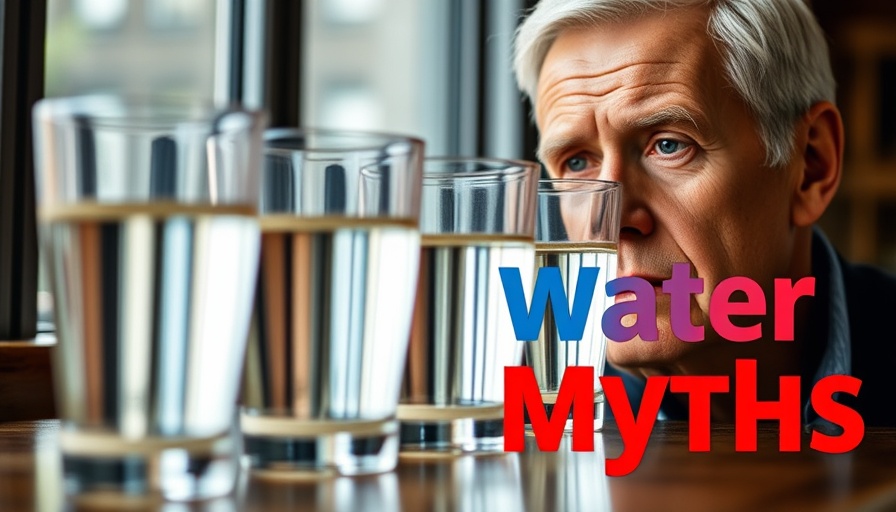
The Myth of Eight Glasses: What You Really Need
For years, we've been told to drink at least eight glasses of water daily for optimal health. But what if I told you that this advice is largely based on myth? Recent discussions highlight that while hydration is crucial, the notion of a strict eight-glass rule may not apply universally. Instead, our hydration needs can be met in various ways, including the foods we consume. Eating a plant-based diet filled with leafy greens not only provides essential nutrients but also supplies significant hydration due to their high water content.
In 'What Happens If You Skip The 8 Glasses of Water a Day Rule?', the discussion explores the truth behind hydration, prompting a deeper look into our drinking habits and their impact on our health.
Hydration Through Food: Nature's Solution
Consider this: gorillas consume around 16 pounds of leaves every day, which offer them moisture without them needing to drink from traditional water sources. This biological truth points to a compelling insight for those following a plant-based diet. By integrating more leafy greens into our meals, we can consume the structured water that these foods contain, ensuring that hydration is a natural part of our diet.
Rethinking Caffeine: Not the Enemy
Another common misconception revolves around caffeine. Many believe that beverages like coffee and tea dehydrate the body. Contrary to this belief, caffeine does not inherently lead to dehydration. In fact, these beverages can significantly contribute to your daily fluid intake! When consumed in moderation, they can complement your hydration goals—something every busy executive should consider.
Risks of Overhydration: A Hidden Danger
While insufficient hydration can lead to dehydration, it's also essential to recognize the risk of overhydration. Amazingly, there are instances where marathon runners face health complications from drinking too much water. In these cases, excessive intake can dilute vital electrolytes like sodium, leading to potentially fatal conditions. As you consider your hydration strategy, remember that moderation is key.
Tap vs. Bottled Water: What You Should Know
*In addressing hydration, it's critical to examine the sources of our water. Many people lean towards bottled water, believing it to be cleaner than tap water. However, not all bottled waters are created equal. The purification processes vary significantly, and some might just be tap water in a different bottle.* For those interested in clean hydration, I recommend opting for glass bottles over plastic ones, as this reduces exposure to harmful chemicals.
Detoxing: The Concerns of Water Fasting
*Water fasting has roots in historical practices—it’s often associated with detoxification in spiritual traditions. However, the modern environment complicates this. In today's world, toxins can accumulate in our fat cells during fasting, posing health risks when they are released back into circulation. Experts suggest integrating supportive measures, like chlorella and activated charcoal, into fasting practices to facilitate safer detoxification.*
Future of Hydration: Mindful Practices
In the whirlwind of executive life, maintaining productivity without sacrificing health is essential. Rethinking hydration, especially in the context of personal wellness and work efficiency, leads to a healthier you – both physically and mentally. So, pay attention to your hydration in a holistic sense, and explore various ways it can enhance your life today.
 Add Row
Add Row  Add
Add 




Write A Comment